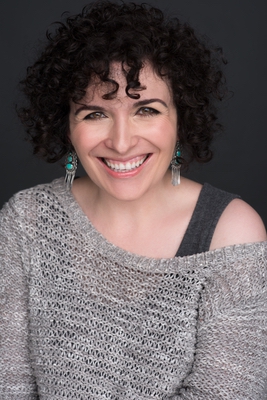
Jehanne Dubrow
Creative Nonfiction
Jehanne Dubrow is the author of seven poetry collections, including most recently American Samizdat (Diode Editions, 2019), and a book of creative nonfiction, throughsmoke: an essay in notes (New Rivers Press, 2019). Her eighth collection of poems, Simple Machines, won the Richard Wilbur Poetry Award and will be published by the University of Evansville Press in 2020. And her ninth book of poems, Wild Kingdom, is forthcoming from Louisiana State University Press in 2021. Her work has appeared in Poetry, New England Review, and The Southern Review. She is a Professor of Creative Writing at the University of North Texas.
Forced Impossibly
i.
Although I visit the site dozens of times, I never take any photographs. Let there be these words instead. The concrete posts between the barbed wire—no longer electrified—like the necks of disconcerting birds. The outlines where buildings once stood. The barracks and barracks. The train tracks, of course. The ramp where prisoners were unloaded, divided into live and die. Let there be the usual amnesia of snow. Let there be signs in German and Polish. Halt! Stój! Let there be clouds drifting in their indifference. Let there be the stone I find on a graveled walk, the hardness of history in my hand.
ii.
The video runs for two minutes and twenty-nine seconds. It has been viewed more than twenty-one million times. Comments for the page have been turned off. As it rises in the sky, the drone sees many things and quickly: snow gray across the metal tracks, the entrance with its canonical curve of words, the birches stripped of leaves. The drone sees tiled roofs. It sees the wall where prisoners were shot. The drone observes the symmetry of it all, how orderly the ruins of the huts, and the roads so evenly incised into the dirt.
iii.
When I search for images on the internet, I learn that a certain angle is irresistible to the camera. A certain perspective. Sometimes the photographs are taken in color to show the countryside, its greenness, like betrayal, in the spring. Sometimes they’re black and white, which gives the scene the distance of an older year, as if we’ve traveled back to then. So many pictures of the same shot. Standing perpendicular to the entrance from hundreds of yards away, any photographer can show, in the narrowing of train tracks, how parallel lines are forced—impossibly—to meet.
“ In Robert Pinsky’s poem, ‘The Unseen,’ a speaker describes the experience of visiting Auschwitz, explaining that ‘We felt bored / And at the same time like screaming Biblical phrases.’ That’s the thing about visiting the death camps: they seldom evoke the emotional responses one expects. There can be grief and anger, of course, but also dislocation and detachment. As long as I’ve been writing about the Shoah—going on twenty years now—I’m still forced to confront, again and again, how genocide strains not only our ability to feel and understand the horror but also pushes against the very limits of language. In ‘Forced Impossibly,’ I write about the act of looking at Auschwitz I and II, using three different vantage points, to consider the ways in which even our eyes cannot make sense of what they are taking in; in these sites of atrocity, even perspective defies our comprehension. ”
